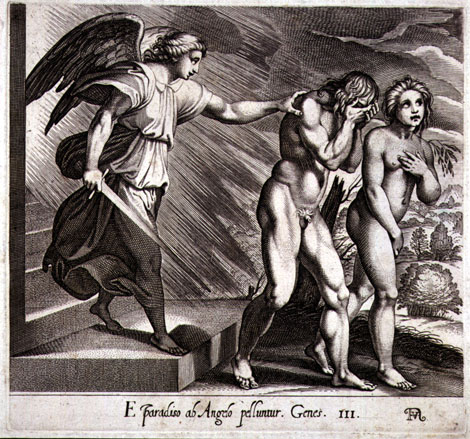A contrast between the reality and appearance is the essence of every irony. Given the milieu in which Jane Austen was writing, a novelist as an ironist had to be subtle enough to distinguish between the conventionally accepted aspects of social environment and what lay beneath the veneer of the milieu and this precisely was Austen’s forte. Irony is the soul of Austen’s novels and it is this very trait of her narrative technique that has infused in Pride and Prejudice a sort of life and vigor; making it a timeless read. Austen has employed different kinds of ironies to add richness and a bright spark to her novel; to poke fun and also as a mild corrective.
Irony of Situation:
Jane Austen’s novels are full of ironic situations. Darcy proposes to her exactly at the moment when she hates him the most. The departure of the militia regiment which was expected to put an end to Lydia’s flirtations actually led to her scandalous elopement. Elizabeth wad convinced that her prospects of marriage to Darcy were completely blasted by the infamy of Lydia’s conduct but the affair actually brought them together. Lady Catherine attempted to frustrate any possibility of Elizabeth’s marriage to Darcy without realizing that in doing so she became instrumental to it.
Irony of Character:
Irony of character is even more prominent in Pride and Prejudice than irony of situation. Isn’t it ironic indeed that Elizabeth who prides herself on her perception is quite blinded by her own prejudice? Wickham’s fine countenance and pleasing addresses make him a favorite wherever he goes but at her heart he is a villain. The Bingley sisters hate the hate the Bennets for their vulgarity but are themselves vulgar in their behavior.
Verbal Irony:
Verbal irony is present in profusion in Pride and Prejudice. The very first sentence of Pride and Prejudice is the finest example of verbal irony: “It is truth universally acknowledged that a single man in possession of a good fortune must be in want of a wife”. The meaning intended in this sentence and revealed in course of the novel is just the opposite of the surface meaning. The truth is that the only purpose of a lot of single women in life is to trap a single man in possession of a good fortune. By display of a high powered diction Austen discloses her sharply critical attitude towards the Bingley sisters. When Caroline Bingley writes to Jane: “If you are not kind enough to dine with Louisa and me, we shall be in danger of hating each other for the rest of our lives. Behind this diction we see Miss Bingley and Mrs. Hurst as they really are – snobbish, domineering and self consequential. Austen writes that Charlotte Lucas accepts Mr. Collins “solely from the pure and disinterested desire of an establishment”. By making this statement sound so tritely positive, Austen has actually emphasized upon the impurity and interest which lie behind Charlotte marrying the pompous, conceited clergyman; thus making a moral criticism. Ironical implications in Austen’s statements are more than often understood at a much later stage. For example we do not appreciate the irony hidden in Darcy’s statement when he says about Elizabeth: “She is tolerable but not handsome enough to tempt me”. We relish in the ironic flavor of this statement later when we figure that the women who was not good enough to dance was in reality good enough to marry.
It has to be noted that irony in Pride and Prejudice is always meant to enrich comedy and add a certain intellectual flavor to it. Austen enjoys depicting the incongruities of character and the society of her times but she does not let them taint the atmosphere of gaiety and mirth that fills the pages.
Since an ironist has to be a detached observer of life, Leonie Villard and Marvin Mudrick conclude that Jane Austen is merely an amused and attentive speaker and she does not seek to interpret life or propound a strict moral vision. Irony is used by her in Pride and Prejudice to shake her major figures of their self deception or to expose the hypocrisy and pretentiousness, absurdity and shortcomings of some of her minor characters and there is a subtle moral scheme. Andrew H. Wright rightly points that irony at the hands of Austen is the ‘instrument of a moral vision’ and not ‘technique of rejection’.
Some online learning platforms provide certifications, while others are designed to simply grow your skills in your personal and professional life. Including Masterclass and Coursera, here are our recommendations for the best online learning platforms you can sign up for today.
The 7 Best Online Learning Platforms of 2022
- Best Overall: Coursera
- Best for Niche Topics: Udemy
- Best for Creative Fields: Skillshare
- Best for Celebrity Lessons: MasterClass
- Best for STEM: EdX
- Best for Career Building: Udacity
- Best for Data Learning: Pluralsight

















[“The Bingley sisters hate the hate the Bennets for their vulgarity but are themselves vulgar in their behavior.”]
What is even more ironic is that the Bingley sisters were determined to look down their noses at both the Bennet and Lucas families. Yet, the Bennets were automatically higher in the social status, due to being members of the landed gentry. And although the Lucases came from trade, they managed to rise to the upper-classes due to Sir William’s disconnecting his ties to trade and acquiring both an estate and a knighthood. The Bingleys – or Charles Bingley – have neither rank or an estate . . . and their connection to trade remained intact.